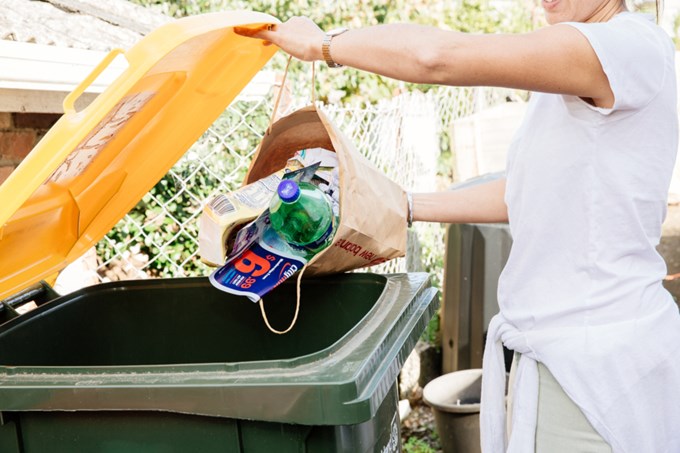Auckland Council is encouraging Aucklanders to recycle all their household plastic containers (those labelled with numbers 1 through to 7) through the council’s kerbside recycling service, which is fully funded by a targeted rate, rather than dropping them off at their local Community Recycling Centre.
With China’s introduction of a ban on the import of plastic recyclables in early 2018, the value of and demand for ‘mixed plastic’ recyclable materials has dropped on global recycling markets. As demand continues to fall, some of Auckland’s Community Recycling Centres (CRCs) have reached the point where it is no longer economically sustainable for them to accept some household recyclable plastics.
All of Auckland’s CRCs are operated by charitable entities. While the CRCs remain strongly committed to offering a full recycling service to their customers, they also need to make financially responsible decisions to ensure the long-term sustainability of their community enterprises.
“The value of ‘mixed plastic’ recyclable containers, which are those labelled with numbers 3 through to 7, has fallen to a point where there is now a net cost for CRCs to accept and deliver these materials to third party recycling suppliers,” says Auckland Council’s Parul Sood, Programme Director – Waste Solutions.
Councillor Penny Hulse, Chair of the Environment and Community Committee, adds, “Our Waste Management and Minimisation Plan clearly outlines council’s expectations for CRCs to accept recyclables. However, the wide-reaching effects of changes in global recycling markets are posing challenges for governments and councils around the world. The prevailing market conditions mean that both council and the wider community need to look for other solutions so as not to place undue pressure on the not-for-profit organisations operating our CRCs.”
“It makes sense for Aucklanders to make the most of the kerbside recycling service, to alleviate the pressure on the CRCs,” says Parul Sood.
If households have too much recyclable material to fit in their kerbside recycling bin, council encourages Aucklanders to set the materials aside for the next collection. When families find they have ongoing problems with not having enough room in their bin each fortnight, they should contact Customer Services on 09 301 0101 to request either a second or a larger recycling bin.
Some CRCs may still offer a service to collect higher value recyclable plastic containers, such as clear soft drink bottles (made from PET – number ‘1’) or see-through milk bottles (made from HDPE – number ‘2’). However, they may need to ask customers to take other recyclable plastic containers home and put the items in their kerbside recycling bin.
Other CRCs are also considering maintaining a full recycling service for their local communities but introducing drop-off charges for domestic and commercial customers who want to continue to recycle their ‘mixed plastic’ (3 to 7) containers.
If you’re looking to drop off recyclable plastic containers at your CRC, find out what changes may be coming in by contacting your local CRC direct. You can find their contact details by visiting www.aucklandcouncil.govt.nz/crc or call Customer Services on 09 301 0101.
For soft plastic materials, drop them off at the one of the 37 collection points for the Packaging Forum’s Love NZ Soft Plastics Recycling scheme.
A quick guide to plastic containers
To learn more about how to recycle right and find out which plastic containers can and can’t be put in your kerbside recycling bin, visit makethemostofwaste.co.nz/recycling/what-can-and-cant-go-into-your-recycling-bin/.
|
Plastic Container label number |
Typical products |
|
1 (PET) |
Soft drink and water bottles, sports drink bottles, rigid condiment and food jars, biscuit trays, salad containers |
|
2 (HDPE) |
Milk bottles, detergent bottles, shampoo bottles |
|
3 (PVC) |
Cosmetic containers |
|
4 (LDPE) |
Squeezable bottles for condiments – e.g. mustard, honey, flexible lids for containers |
|
5 (PP) |
Takeaway containers, dairy food containers, ice-cream containers |
|
6 (PS - rigid) Note: EPS polystyrene foam cannot be recycled in your kerbside recycling bin |
Small yoghurt pots |
|
7 (Other) |
Miscellaneous food containers |
Reduce and reuse, before recycling
Auckland Council is also encouraging Aucklanders to look for ways to reduce their use of single-use plastic.
"There are lots of simple ways to reduce our use of single-use plastics,” says Councillor Penny Hulse.
“Some quick wins include using a reusable coffee cup or drink bottle, refusing plastic straws in your drinks, bringing your own reusable containers to the supermarket for deli and butchery purchases, and refusing single-use plastic bags. The more we choose to refuse and reduce our plastic consumption, the less we have to recycle.”
You can sign up to the 2019 Plastic Free July Aotearoa challenge at plasticfreejuly.org/take the challenge.
Are you a recycling legend? Play the Recycle Right game to find out.


